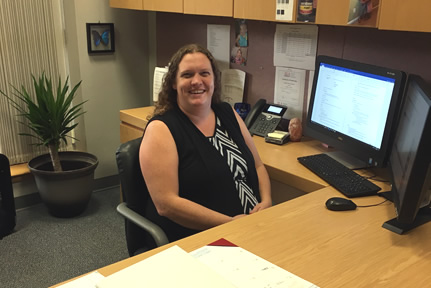Schedule of University Libraries Academic Technologies Workshops Fall 2016. Registration is not required.
For workshop descriptions, visit the Academic Technologies blog: http://bit.ly/acadtech Questions? Contact Melissa Green, mfgreen1@ua.edu, 205-348-3423.
Box Sharing with Box, Monday, Nov. 21, 10:30-11:30 a.m., 104 Gorgas Library; Communicating & Editing in Box, Monday, Nov. 28, 10:30-11:30 a.m., 104 Gorgas Library; Google Apps Academic Paper Formatting in Google Docs, Monday, Aug. 29, 10:30-11:30 a.m., 33 McLure Library; Academic Paper Formatting in Google Docs, Thursday, Sept. 1, 9:30-10:30 a.m., 104 Gorgas Library; Microsoft Office Academic Paper Formatting in Microsoft Word, Monday, Aug. 22, 10:30-11:30 a.m., 104 Gorgas Library; Academic Paper Formatting in Microsoft Word, Thursday, Aug. 25, 9:30-10:30 a.m., 33 McLure Library; NVivo NVivo 11 Overview, Thursday, Sept. 22, 9:30-10:30 a.m., 104 Gorgas Library; NVivo 11: Working with Text, Thursday, Sept. 29, 9:30-10:30 a.m., 104 Gorgas Library; NVivo 11: Working with Audio, Video, and Images, Thursday, Oct. 6, 9:30-10:30 a.m., 104 Gorgas Library; NVivo 11: Analysis & Visualization, Thursday, Nov. 3, 9:30-10:30 a.m., 104 Gorgas Library; NVivo 11: Working with Social Media Data, Thursday, Nov. 10, 9:30-10:30 a.m., 104 Gorgas Library; NVivo 11: Working with Survey Data, Thursday, Nov. 17, 9:30-10:30 a.m., 104 Gorgas Library; NVivo for Literature Review, Thursday, Dec. 1, 9:30-10:30 a.m., 104 Gorgas Library; Qualtrics Basic Qualtrics Survey Building & Distribution, Monday, Oct. 31, 10:30-11:30 a.m., 104 Gorgas Library; Advanced Qualtrics Survey Building, Monday, Nov. 7, 10:30-11:30 a.m., 104 Gorgas Library; Qualtrics Responses & Results Tools, Monday, Nov. 14, 10:30-11:30 a.m., 104 Gorgas Library; Reference Management Reference Management Basics, Thursday, Sept. 8, 9:30-10:30 a.m., 33 McLure Library; EndNote in 30 Minutes, Monday, Sept. 19, 10:30-11:30 a.m., 33 McLure Library; EndNote: Gathering & Working with Research Sources, Monday, Oct. 10, 10:30-11:30 a.m., 33 McLure Library; EndNote: Creating Bibliographies & Writing Papers, Monday, Oct. 24, 10:30-11:30 a.m., 33 McLure Library; RefWorks in 30 Minutes, Monday, Sept. 12, 10:30-11:30 a.m., 33 McLure Library; RefWorks: Gathering & Working with Research Sources, Monday, Sept. 26, 10:30-11:30 a.m., 33 McLure Library; RefWorks: Creating Bibliographies & Writing Papers, Monday, Oct. 3, 10:30-11:30 a.m., 33 McLure Library
